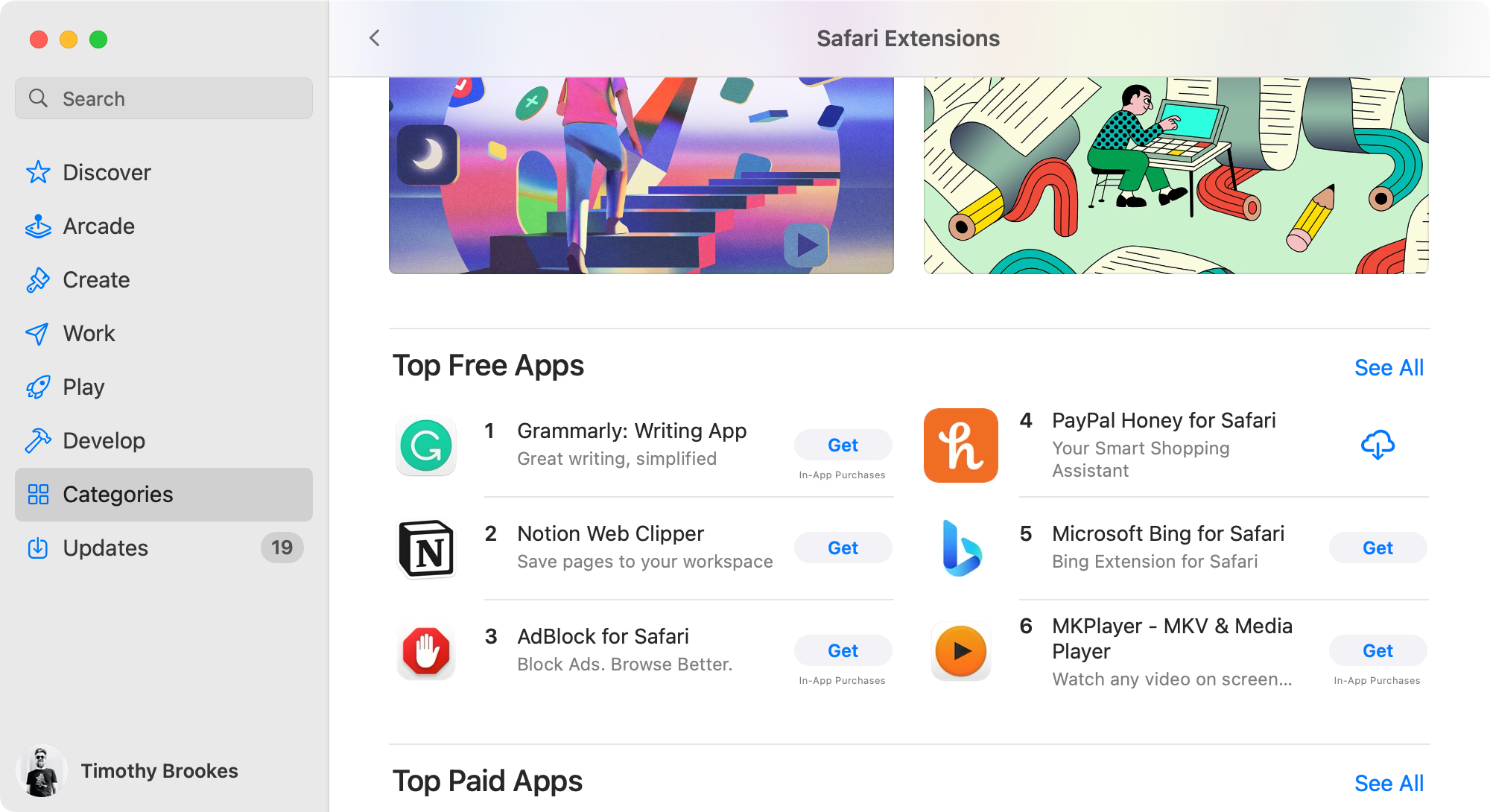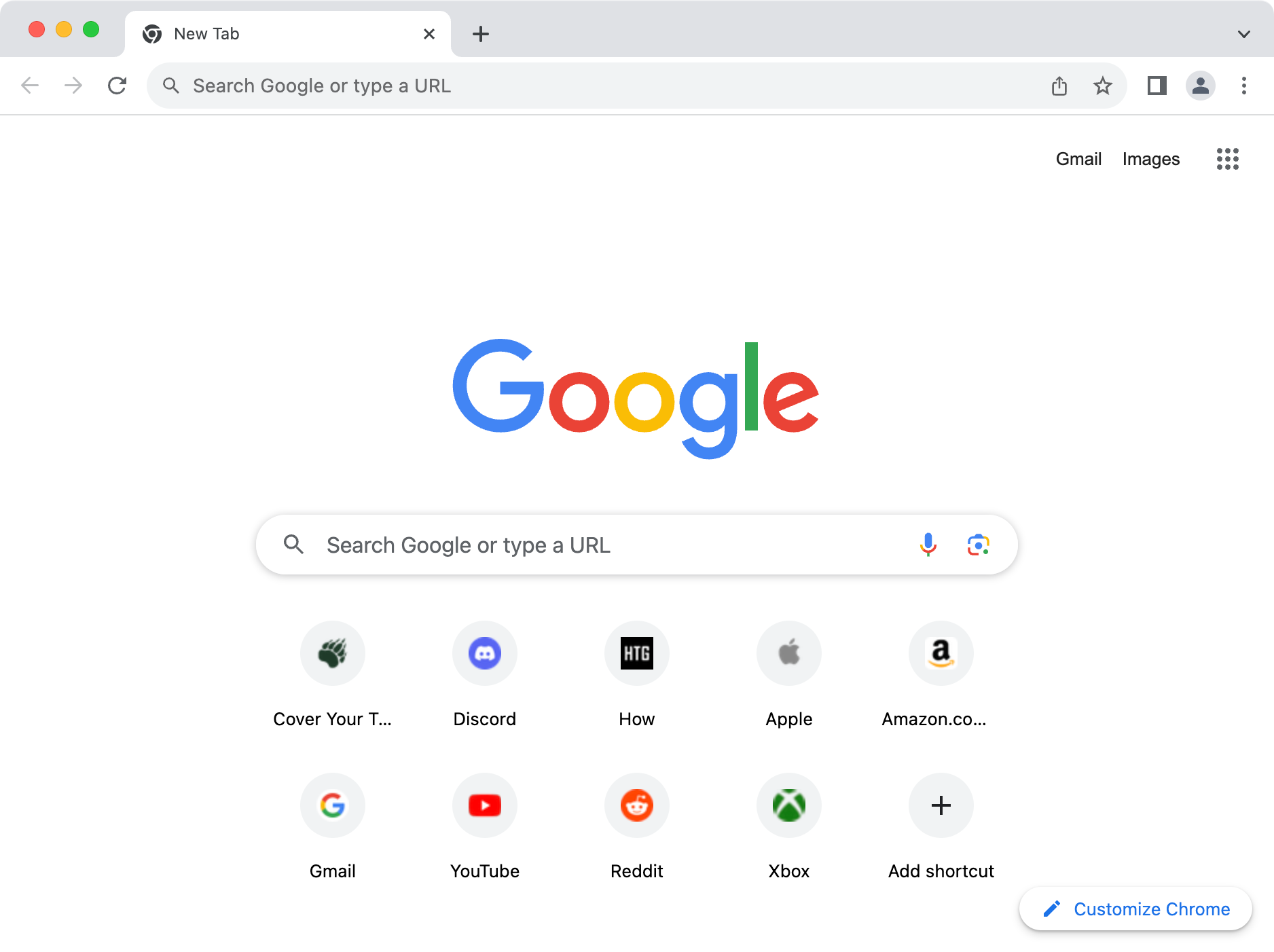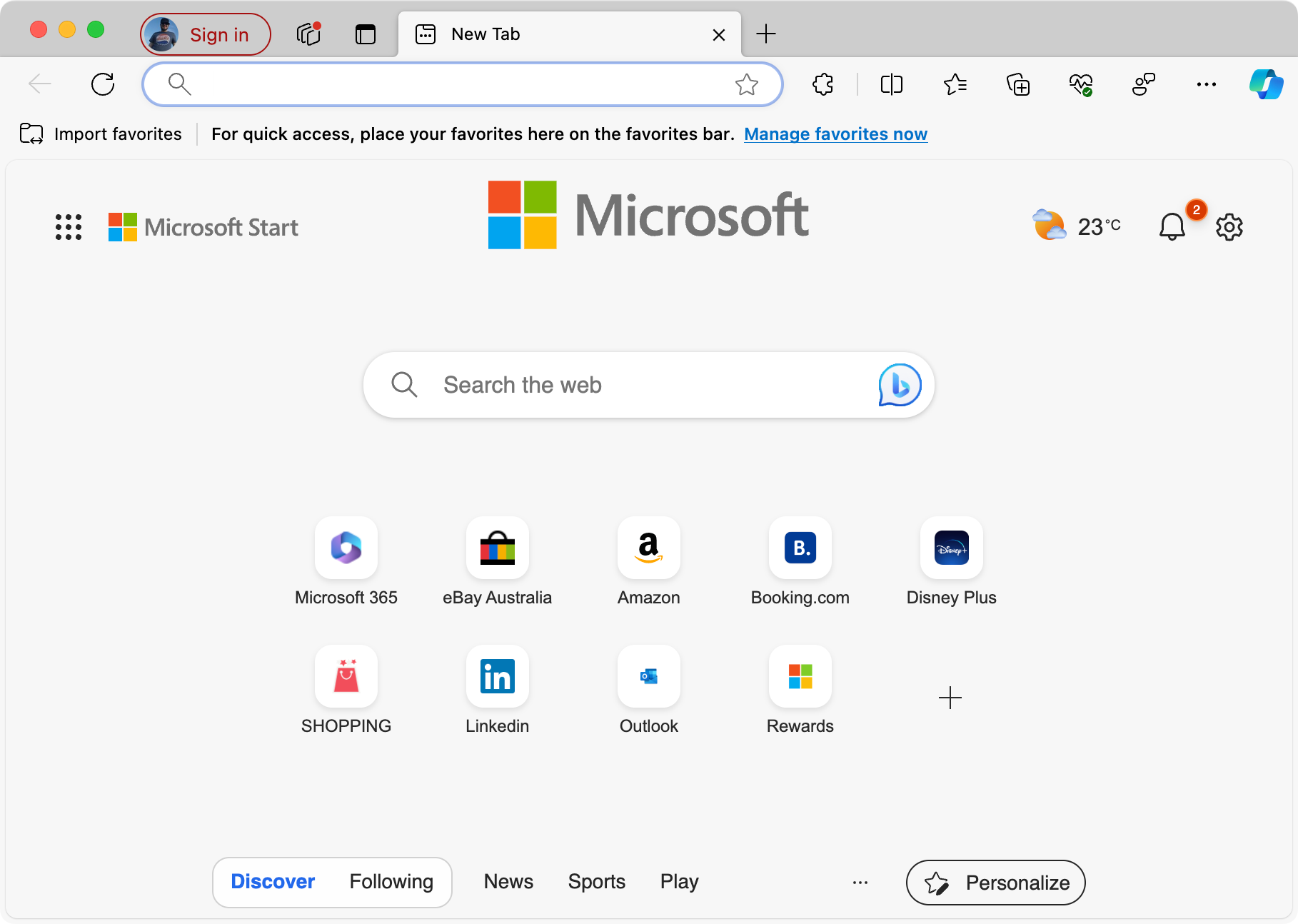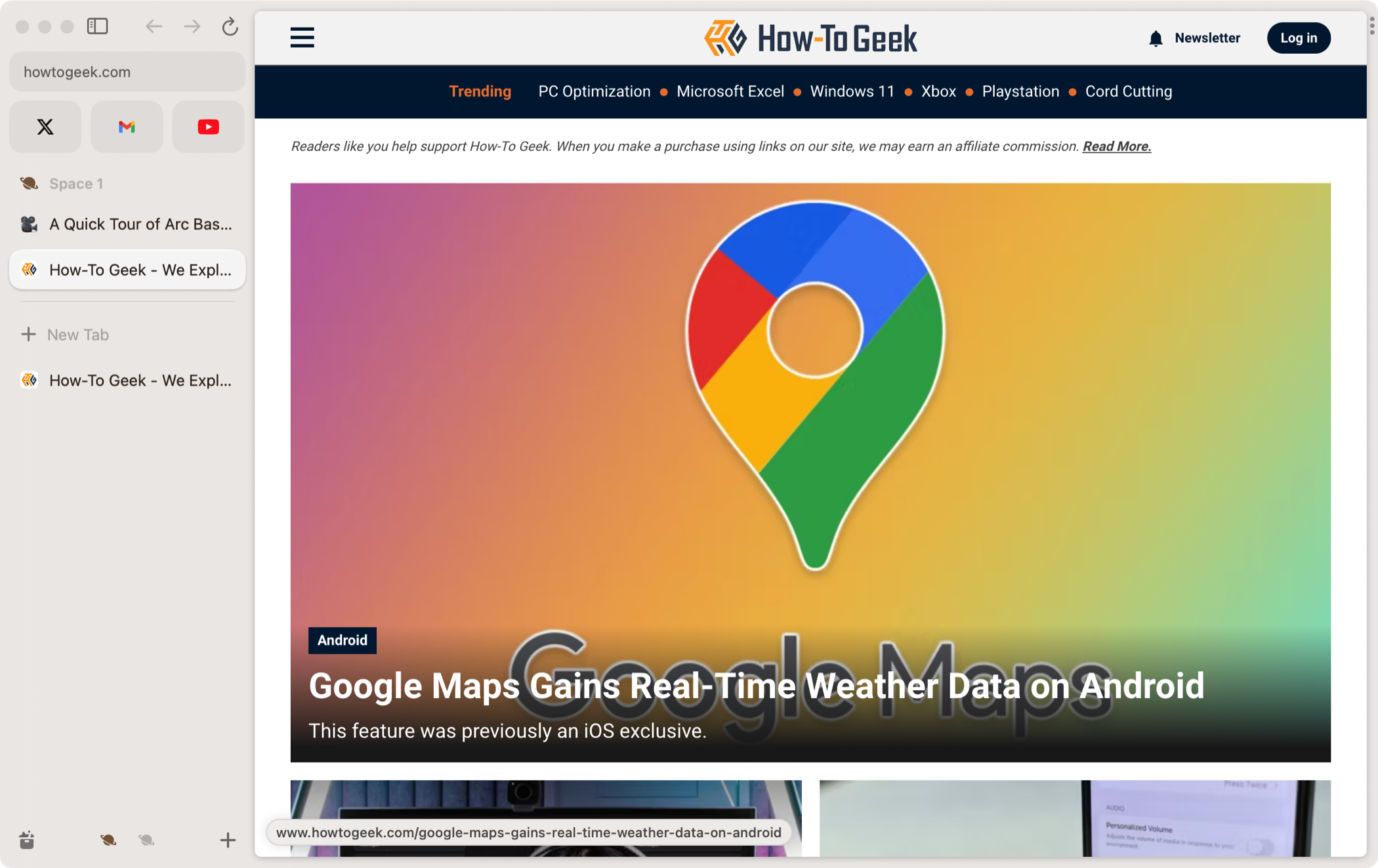Key Takeaways
- Safari is highly optimized for Apple hardware, but it may have limited web app compatibility and fewer extensions compared to browsers like Chrome.
- Firefox is a privacy-conscious alternative to Safari, offering features like Do Not Track and blocking invisible trackers. Chrome is the most popular browser, known for its compatibility and wide range of extensions, but it may compromise privacy. Consider trying other browsers like Edge and Vivaldi, or unique options like Arc for a different browsing experience.
Your choice of web browser can have a big impact on your Mac experience. From integration with the services you use to power efficiency and reliability, here’s how to decide which is best for you.
Safari is (Arguably) the Best Mac Browser
There are a few good reasons to pick Safari as your browser of choice if you’re a Mac user, especially if you use other Apple devices like an iPhone or iPad. It might surprise you to find out that you’re not alone, with Safari being the second most popular browser on the web thanks to its inclusion on both mobile and desktop devices.
Apple tightly optimizes Safari for use exclusively on Apple hardware. This means that Safari is highly power efficient on a Mac. When Apple gives an estimate of battery life on its latest Mac models for performing activities like “wireless web” they’re specifically referring to the use of Safari. The company is in a position where both the hardware and the software are designed in unison, so Apple is not bound by thousands of different hardware possibilities.
That helps Safari remain performant on Apple hardware too, a fact you can see for yourself using browser benchmarks like Speedometer 2.0. In use, Safari feels snappy. The UI is small and non-intrusive, and you can even customize the toolbar using the right-click menu as you can other native Apple apps.
Safari is also loaded with familiar features and technology. iCloud makes it possible to share tab groups, browsing sessions, bookmarks, a Reading List, and even extensions with your iPhone or iPad. The Share menu works just as it does on the iPhone. Continuity makes it possible to quickly jump between devices by placing a small icon in your Mac dock.
Apple’s services work especially well in Safari. You can log in with your Apple ID using your fingerprint, pay for items using Apple Pay right in your browser, and use a variety of Shortcuts actions to build workflows that work using Safari.
Apple also makes it easy to add extensions using the Mac App Store. This isn’t everyone’s cup of tea, but it adds an additional layer of protection against potentially harmful extensions. You can still choose to install unsigned extensions by enabling the Develop menu if you want.
In terms of privacy, Safari isn’t the best browser you can get your hands on but it’s far from the worst. The browser works with Apple’s iCloud Private Relay for iCloud+ subscribers, which anonymizes web requests using a two-step process. Do Not Track is enabled by default, and it provides partial protection against trackers.
You can’t get rid of Safari from your Mac, so it’s ready and waiting for you with every new Apple computer purchase (or every time you reset the operating system). Apple is always updating and building upon Safari with enhancements, like macOS Sonoma’s ability to turn websites into app-like instances.
Want to Ditch Safari? Here’s What to Use Instead
Though Safari is suitable for a wide range of users, it’s far from the last word when it comes to web browsers. It’s convenient and always there if you want it, but it’s not without its critics. One reason you might want to switch is web app compatibility, which can be limited on Safari due to its relatively narrow user base. A lot of Safari users are mobile users, and many services prefer to funnel these users into dedicated apps.
Safari lacks the compatibility of a browser like Chrome or Edge, which means some web apps will simply refuse to work in Safari and demand that you use something else instead. Perhaps worse still, some websites won’t warn you before they refuse to function as intended. You might get glitchy behavior that can be avoided by using another browser.
Safari also isn’t a “platform” quite in the same way that Chrome and similar browsers are. There is a huge range of extensions made with Chrome in mind (including browsers like Edge and Vivaldi), which might make such a platform more desirable if you live inside of browser extensions.
You may even find yourself with no choice but to use an alternative for work or education purposes. Some institutions refuse to support certain browsers, and since Safari is limited to Apple devices it’s easier to tailor an experience to a browser that has cross-platform compatibility.
If privacy is your main concern, Safari might not go far enough to protect you, and you may be tempted to move to something like Firefox instead.
Firefox is the Privacy-Conscious Safari Alternative
Mozilla’s browser is a solid alternative to Safari, with some excellent privacy considerations. Firefox enables Do Not Track by default and blocks both invisible trackers and tracking ads. Firefox even uses DuckDuckGo as its default search engine.
Firefox tests slower than Safari and Chrome in many benchmarks, but how much time this will save you during your daily surfing sessions is up for debate. The browser also enjoys a far wider range of extensions than Safari, though it still falls short of the Chromium family.
Like Safari, Firefox Sync allows you to share browsing sessions and bookmarks with other devices including Windows PCs and mobile platforms like iOS and Android. Firefox remains a browser of choice for those mostly concerned with web privacy and enjoys a loyal (if small) base of users.
Chrome is Number One for Compatibility and Extensions
Google Chrome is the behemoth of web browsers, with more than 60% of all web users choosing to use it. As such, it enjoys excellent compatibility with most websites and web apps, and some even insist on its use (or a similar Chromium-based browser).
Google Chrome fares poorly from a privacy standpoint, with Do Not Track disabled by default, and both invisible trackers and tracking ads able to track you unless you limit this behavior with extensions. On the plus side, there are a huge number of extensions and apps available for Chrome that can help remedy the problem.
Though Chrome has a bit of a reputation for being a resource hog, Google has attempted to address the problem with a feature called Chrome Memory Saver that is designed to purge websites from memory after a period of inactivity. The company also improved Chrome’s energy efficiency with Chrome Energy Saver Mode.
Chromium-Based Browsers Offer Unique Alternatives to Chrome
Chromium is the core open-source browser core on which Chrome and similar projects are built. This means you can have Chrome’s speed, compatibility, and even the full range of extensions without having to use the Google-branded variant.
There are plenty of other Chromium-based browser to choose from, such as Microsoft Edge which falls into the same privacy pitfalls as Chrome; Vivaldi with its customizable interface and email client; and Brave Browser which delivers a slightly confusing combination of cryptocurrency features, opt-in adverts, and privacy considerations.
For a no-frills experience, there’s also vanilla Chromium, the open-source version of Chrome to which Google contributes. Then there are projects like Ungoogled Chromium, which removes dependency on Google services and makes tweaks to enhance privacy.
Alternatively, Try Something Completely Unique
Arc is a browser that does things a little differently than most. Not only does it cull your tabs for you, but it also includes some unique features like side-by-side tab mode, note-taking and whiteboard functionality within the app, and a macOS Spotlight-esque command interface for getting around without touching your mouse.
We reviewed Arc in March 2023 and loved it, though the fledgling browser wasn’t without issues surrounding power consumption and general jitteriness. It’s now out of beta and things have settled down somewhat, so it might be worth a shot if you’re looking for a web browser that helps you stay neat and organized.
It’s far from the only weirdo browser out there though. Colibri is a browser that lacks tabs and emphasizes an uncluttered experience. It’s designed to force you into more mindful browser sessions. Tor is a browser designed for browsing the dark web, but there are other private browsers like Mulvad and Waterfox that you might want to use instead.
The Case for Multiple Browsers
There are so many compelling reasons to use Safari that we think it’s the best choice for most users. Failing that, Firefox offers a solid browsing experience that respects your privacy.
It’s a good idea to have more than one browser installed for those times when you encounter difficulties with your primary choice. On top of this, you can kit a second browser out with extensions that might make certain web operations easier to complete.
source






